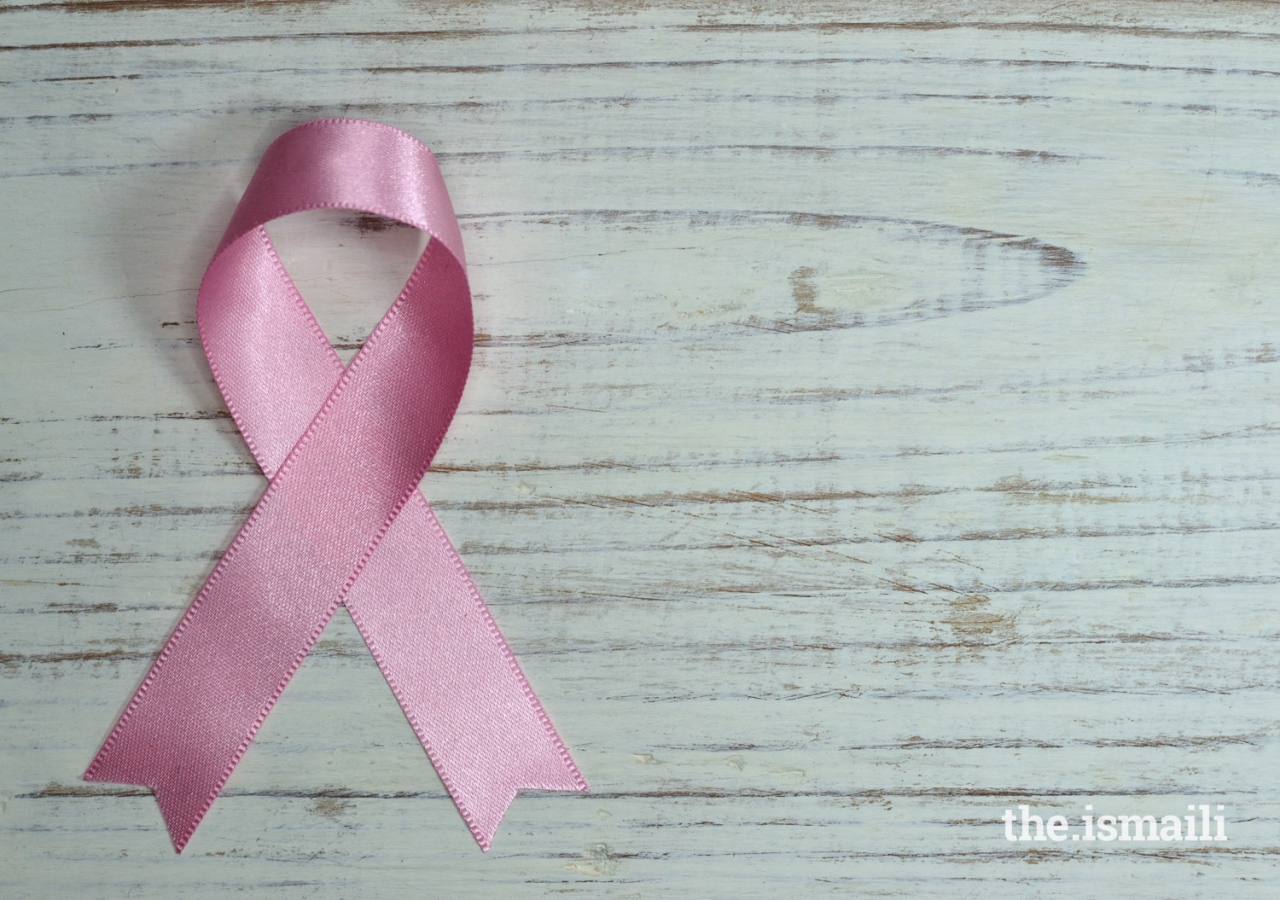Cancer in general accounts for a large proportion of the deaths caused by non-communicable diseases globally. These include cardiovascular diseases, cancers, respiratory diseases, and diabetes. Today, such conditions are responsible for over 70% of all deaths around the world.
In a speech at the initiation ceremony of the Aga Khan University Hospital in Kampala, Uganda, in December 2015, Mawlana Hazar Imam remarked on the healthcare challenges of the future.
“We are more and more confronted in modern society by non-communicable disease and therefore in the decades ahead we will be concentrating through the Aga Khan Health Network and other medical institutions in dealing with non-communicable diseases. And I refer to diabetes, hypertension, cardiovascular disease, mental and neurological illness, cancer and others. These are the areas where we must concentrate properly, to serve future generations of society.”
The specific causes of breast cancer are not yet known to doctors and scientists, although there are a number of factors which are more likely to increase the risk of developing cancer, such as age, family history, previous diagnoses, and being overweight. It is important to note however, that most women who develop breast cancer have no family history of the disease.
Even so, it is worth being aware of family history and genetic risk. Several genes are designed to protect us from getting cancer. Mutations or changes in these genes may then predispose us to developing breast cancer. Guidelines for genetic counseling and testing for hereditary breast cancer are available here.
Breast cancer can bring on various symptoms, and women of all ages should be encouraged to be aware of the signs — which may or may not be accompanied by pain — so as to avoid unnecessary complications further down the line. A list of the symptoms can be found here.
Dr Anees Chagpar, Professor at the Department of Surgery and Assistant Director of Global Oncology at the Yale University School of Medicine, calls for an increased awareness of the risks associated with such conditions.
“While breast cancer is the most common malignancy affecting women worldwide, it is also one of the most treatable. By understanding and minimising risk factors and engaging in resource-appropriate screening, we can minimise the mortality associated with this disease,” she says.
It is vital to check for cancer regularly, so that a potential condition can be addressed and treated as soon as possible. It is never too soon to examine yourself, or get checked by a doctor. Depending on the healthcare facilities in your region, after an initial check, the next step may be a referral to a specialist clinic for a screening or biopsy. Screening with mammography is an effective method of finding cancers, and the more frequently individuals obtain a screening, the better the chances of a successful treatment if needed.
Studies have shown that keeping physically active, maintaining a healthy diet, avoiding hormone replacement therapy, and breastfeeding your children, if possible, can help to reduce the risk of developing breast cancer later in life.
While adverse health conditions can be difficult for the patient, any type of disease, not least cancer, can also have an impact on partners and children. Dr Farah Alani, Chairperson of the Aga Khan Health Board of the Northeastern USA says, “As much as breast cancer directly affects women, it also has a detrimental effect on our families. Early detection can reduce the intensity of the treatment and the impact it has on ourselves and our loved ones.”
---
If you have concerns about the health of yourself or your family, a wise course of action is to get in contact with a doctor, or reach out to the Aga Khan Health Board.








